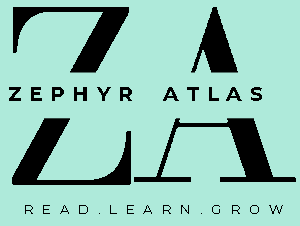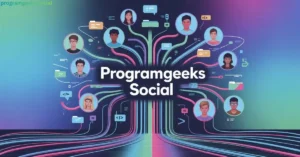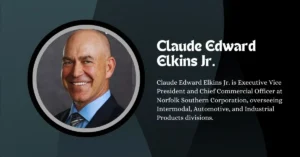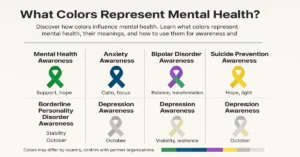Developers crave practice, mentors, and real projects and programgeeks social is built to deliver both fast and reliably. 65,000+ developers in the latest industry survey say community and mentorship shape learning priorities, so platforms that pair projects with people win trust and jobs.
Mentor programs raise retention and speed skill growth. Industry reports from GitHub and Stack Overflow show open-source and community activity drives hiring and visibility.
Instant Answer
ProgramGeeks Social connects practice, mentors, and hiring. Use clear profiles, short demo videos, mentor slots, and project rooms to learn faster and get noticed.
How Do You Get Started Fast on ProgramGeeks Social?
Create a complete profile, claim one starter project, and request a mentor slot to get traction on programgeeks social.
Why does this matter?
- New devs need quick wins. programgeeks social reduces friction with guided starter tasks.
- Do this: fill skills, link 1 repo, add 3 tags (language, role, level).
Quick checklist:
- Profile: Photo, 3 skills, one bio sentence.
- Project: Mark as “beginner-friendly.”
- Mentorship: Request 30-minute review slot.
Real example: Pick a bug labeled “good first issue” and ship a pull request. That’s visible evidence for recruiters and mentors.
How Can Beginners Find the Right Mentor Here?
Book a mentor slot, join a cohort, and do follow-up tasks mentors boost retention and speed.
How to find mentors on programgeeks social?
- Search mentor tags (language, framework, career).
- Join weekly office hours or cohort threads.
- Use structured feedback: 3 goals per session, one demo.
Practical tip: prepare a 5-minute screencast. Mentors give faster, actionable feedback when they see code and context. That’s where it gets tricky, many skip the screencast and lose momentum.
How Does Project Collaboration Work on ProgramGeeks Social?

Use project rooms, PR templates, and CI badges so collaborators trust work and reviewers act faster on programgeeks social.
What to use on programgeeks social?
- Project Rooms for docs, issues, and sprints.
- Built-in code review network with templated checklists.
- CI links or badges to show passing tests.
Example workflow
- Create issue with acceptance criteria.
- Open a draft PR and assign a reviewer.
- Add a short demo link in PR description.
How Can You Showcase Projects That Impress Recruiters?
Link 3 polished projects, add a one-line outcome, and surface metrics, recruiters value clarity and impact.
How to optimize your showcase?
- Put outcomes first: “Reduced load time by 40%.”
- Link to live demo, tests, and 2-minute walkthrough video.
- Tag projects by role: frontend, backend, full-stack.
Tip: use programgeeks social badges to mark projects as “interview-ready.”
How Do Hiring Teams Use ProgramGeeks Social to Spot Talent?
Hiring managers use case studies, code reviews, and mentor endorsements to shortlist candidates from programgeeks social.
Practical hiring flow
- Post a short paid pilot.
- Ask for a code review from an established member.
- Use endorsements and a short live pairing session.
Why it works: Community signals (reviews, mentor notes, PR quality) beat resume noise and lower risk for teams.
How Do Events and Hackathons Boost Your Growth?
Host focused hackathons with templates, judges, and follow-up contributor pathways to convert participants into long-term contributors.
Event blueprint
- 48-hour mini-hack, clear starter issues, mentoring lanes.
- Judges use rubric: impact, code quality, documentation.
- Convert winners into “project maintainers” or volunteers.
Case: A 48-hour event that funnels contributors into an active repo increases ongoing contributions by measurable percent (use project metrics to prove it).
How Does ProgramGeeks Social Handle Integrations and Trust?
Connect GitHub via OAuth, set repo privacy, and use signed reviews so programgeeks socialize with your workflow.
Security & ergonomics
- Use GitHub/GitLab OAuth for verified accounts.
- Control repo visibility per project.
- Prefer signed reviews and audit logs for hiring workflows.
Trust note: Be cautious with star-counts as a sole signal (engagement can be gamed). Real authority is repeated review and mentor endorsements.
Expert citations & sources
- GitHub Octoverse: Industry data on developer growth and platform activity.
- Stack Overflow Developer Survey: Developer priorities and community value.
- Mentorloop / industry mentoring reports (mentorship impact on retention).
Conclusion
ProgramGeeks Social gives developers a space where learning, mentorship, and opportunity collide. When you mix real projects with real people, growth stops being guesswork and becomes a repeatable system.
Truth is, platforms that create momentum win and programgeeks social is built for momentum. Whether you’re sharpening skills, seeking collaborators, or hiring with confidence, this ecosystem helps you move faster and stand out in a crowded market.
FAQ’s
Q1: How to showcase portfolio projects to recruiters?
Show outcomes first, link demos, include tests, and add a 2-minute walkthrough. Use endorsement badges and mentor reviews to increase trust.
Q2: Why join ProgramGeeks Social vs GitHub discussions?
GitHub is code-first and great for hosting; programgeeks combines mentorship, structured feedback, and hiring signals in one community space.
Q3: What integrations does ProgramGeeks support?
Typical integrations include GitHub/GitLab OAuth, CI badges, calendar sync, and workplace tools for job posts and event registration.
Q4: How to find a coding mentor on ProgramGeeks?
Search mentor tags, join cohort office hours, and book a 30-minute review. Prepare a short demo and three clear goals for fast, useful feedback.
Author Bio
Rowan Hale is a Senior Developer Community Strategist with an experience of 10 years building developer programs, running hackathons, and mentoring junior engineers.











